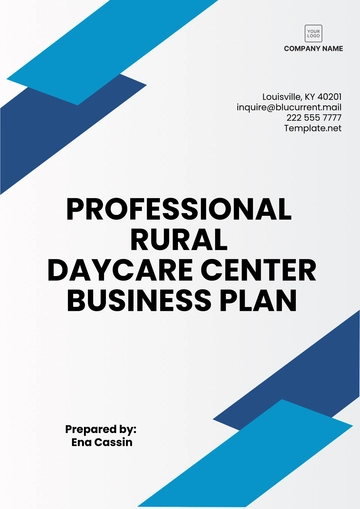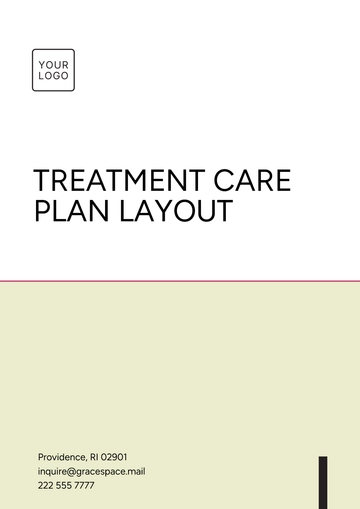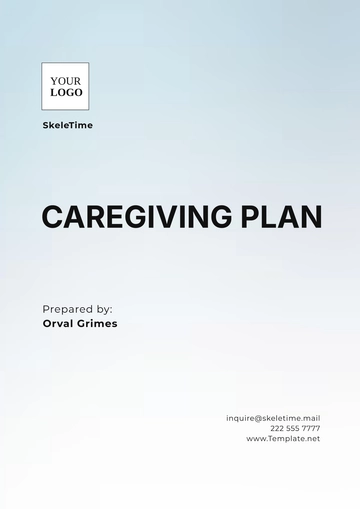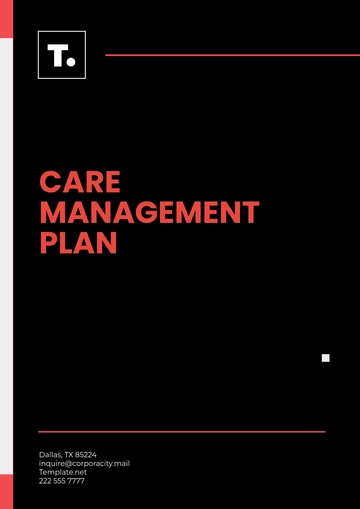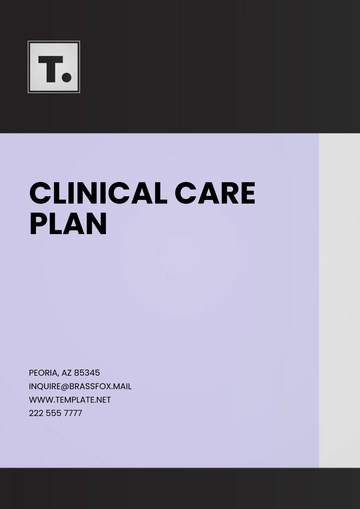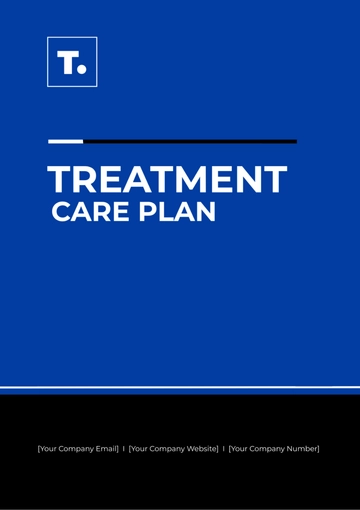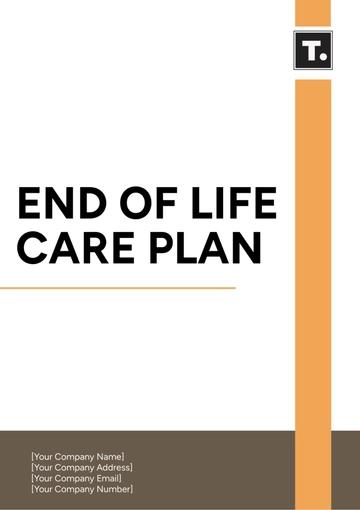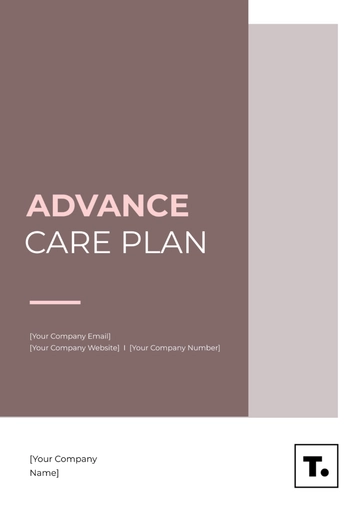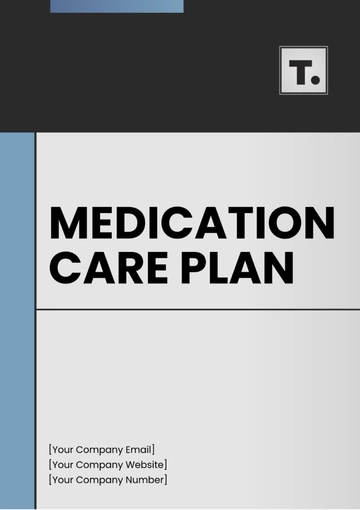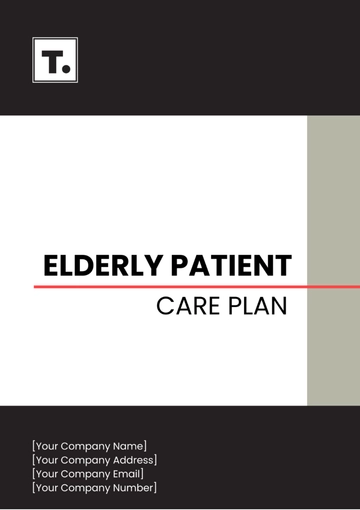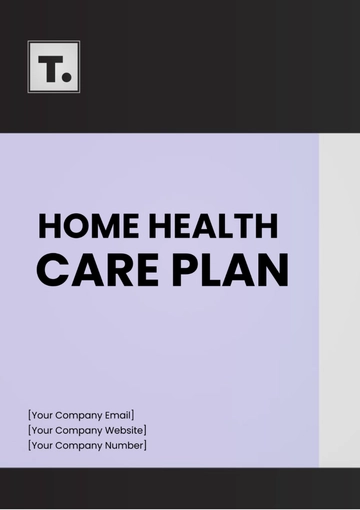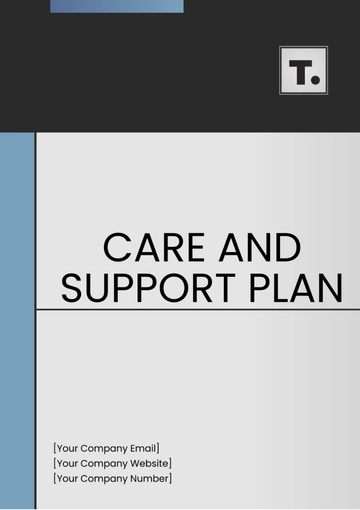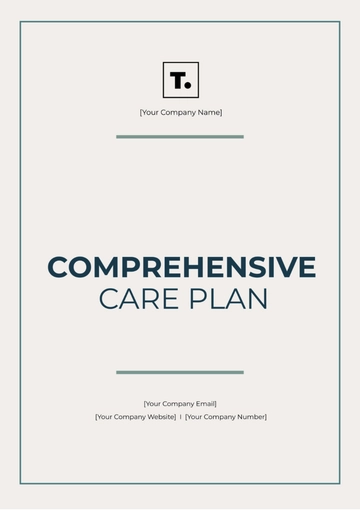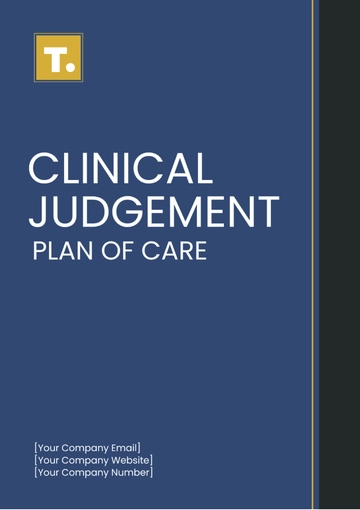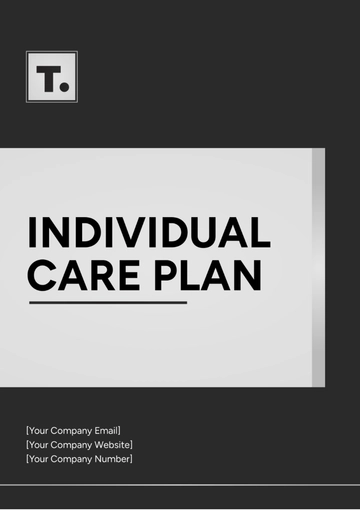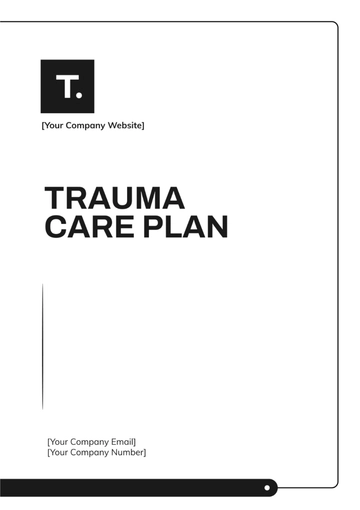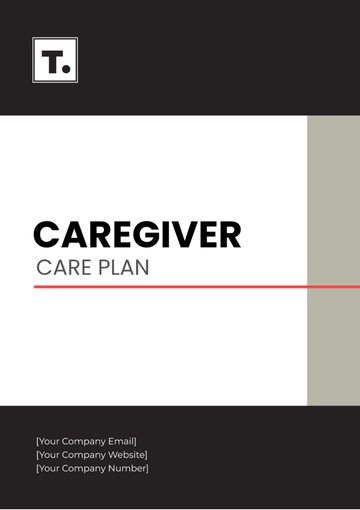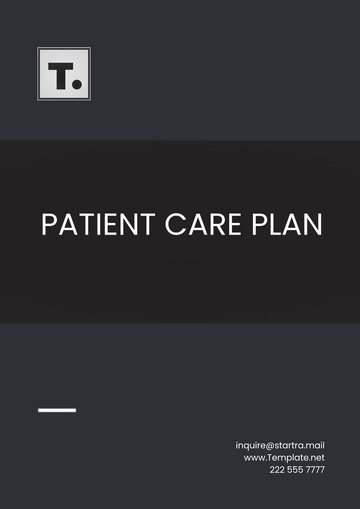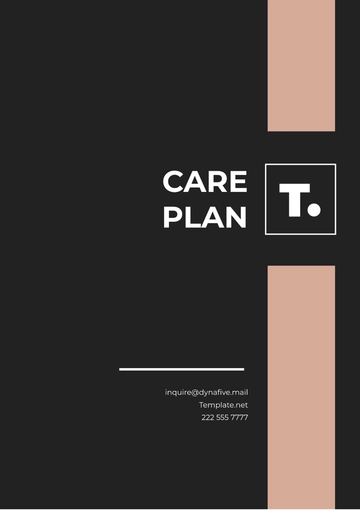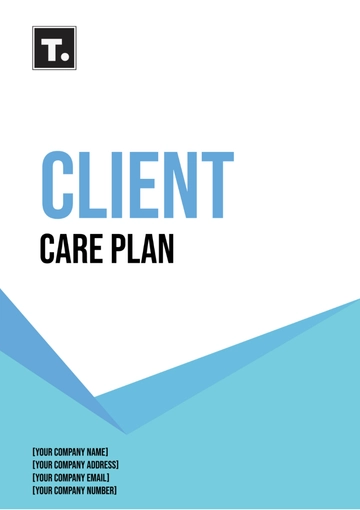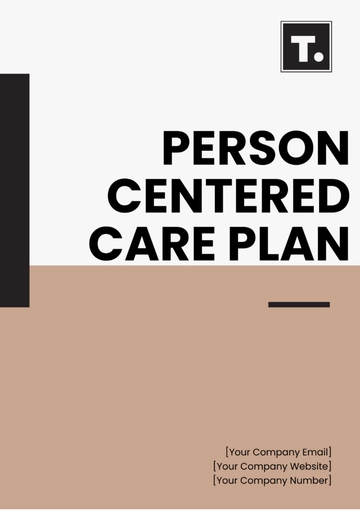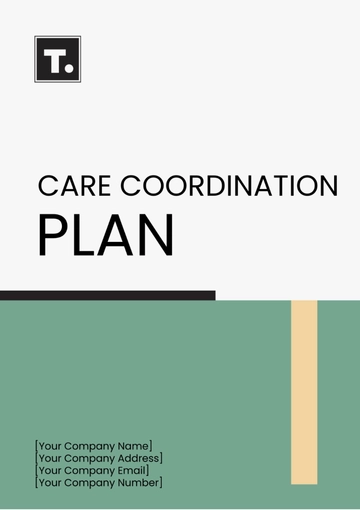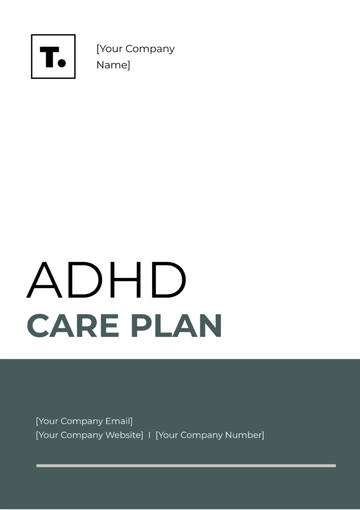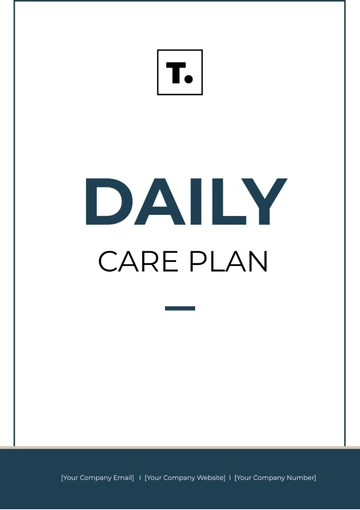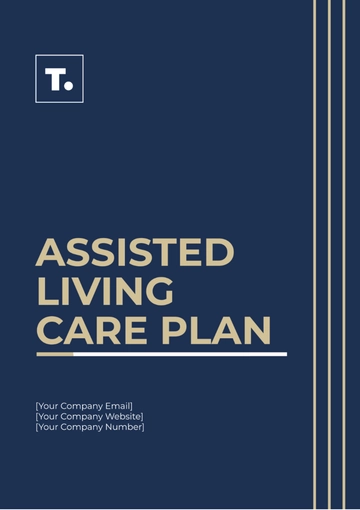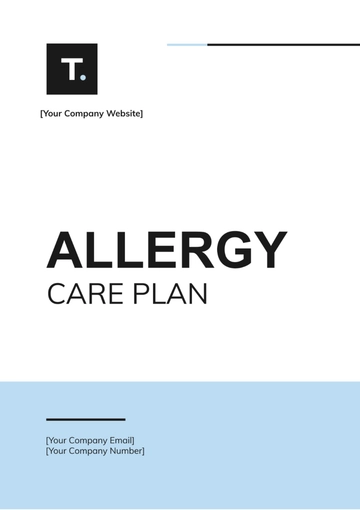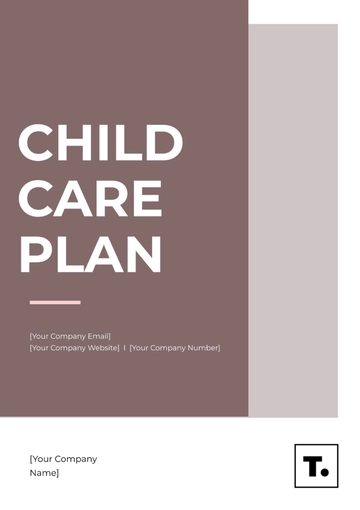Free Care Plan
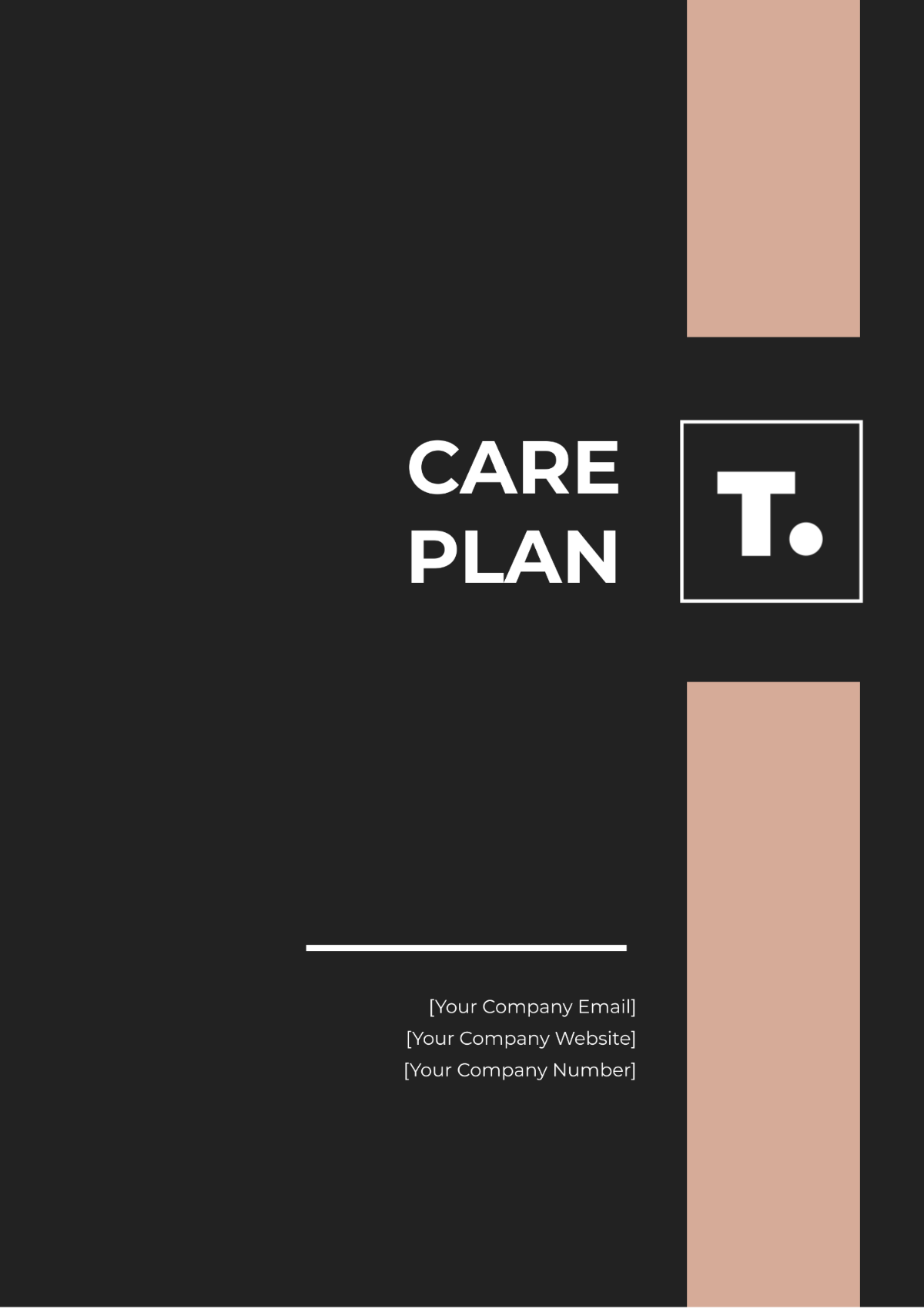
Patient Information | Details |
|---|---|
Name | [Your Name] |
Age | [Your Age] |
Diagnosis | [Primary Diagnosis] |
Discharge Date | [Discharge Date] |
Discharge Location | [Home/Rehabilitation Facility] |
I. Introduction
The following care plan is designed to support [Your Name], following their recent hospitalization. Our goal is to ensure a smooth transition from the hospital to home, promote recovery, and prevent complications. This plan outlines specific interventions and resources tailored to meet [Your Name]'s needs. Regular assessment and communication will be key in optimizing [Your Name]'s post-discharge care.
II. Goals
Ensure patient's safety and well-being at home by addressing specific needs.
Facilitate recovery and prevent complications related to the hospitalization.
Provide necessary support for activities of daily living during the recovery period.
Promote adherence to medication and treatment regimens to optimize health outcomes.
Educate patients and caregivers on recognizing signs of complications and when to seek medical assistance.
III. Care Team
Primary Care Physician: [Physician's Name, Contact Information]
Specialist(s) Involved: [Specialist Names, Contact Information]
Home Health Nurse: [Nurse's Name, Contact Information]
Caregiver(s): [Name(s) of Caregiver(s)]
Pharmacist: [Pharmacy Name, Contact Information]
IV. Care Plan
1. Medication Management:
Review and understand the medication list, including any changes from the hospital stay.
Provide details on each medication's dosage, frequency, and side effects. Arrange for medication delivery or refills as needed.
Educate the patient and caregiver on proper storage and administration techniques, including the use of pill organizers if necessary.
2. Follow-Up Appointments:
Schedule follow-up appointments with primary care physicians and specialists within [Specify Timeframe].
Ensure transportation arrangements are in place for appointments.
Provide contact information for scheduling and rescheduling appointments if needed.
3. Home Health Services:
Arrange for home health nurse visits [Specify Frequency] for wound care, medication management, and monitoring vital signs.
Coordinate with physical therapists or occupational therapists for rehabilitation exercises if required as per the discharge plan.
4. Dietary Needs:
Provide dietary guidelines based on the patient's condition and any dietary restrictions.
Arrange for meal delivery services or assistance with meal preparation if necessary.
Ensure access to adequate nutrition and hydration to support recovery.
5. Mobility and Safety:
Conduct a home safety assessment to identify and address potential hazards.
Provide assistive devices such as walkers, canes, or shower chairs if needed.
Educate patient and caregiver on fall prevention strategies and proper use of assistive devices.
6. Symptom Monitoring:
Educate patient and caregiver on common symptoms related to the condition and signs of complications.
Provide a symptom log for tracking changes in health status and medication side effects.
Instruct on when to contact healthcare providers for concerns or emergencies, including after-hours contact information.
7. Emotional Support:
Offer resources for counseling or support groups to address emotional needs during recovery.
Encourage open communication about fears, concerns, and emotions related to the hospitalization and recovery process.
Monitor for signs of depression or anxiety and provide appropriate interventions or referrals as needed.
8. Caregiver Support:
Educate caregivers on patient care, including medication and wound management.
Offer respite care options to prevent caregiver burnout and promote their well-being.
9. Advance Care Planning:
Discuss advance directives and healthcare proxy if not already in place.
Record patient's end-of-life care preferences and treatment choices.
Discuss hospice care options and preferences with the patient and their family if applicable.
V. Follow-Up:
Regularly review and update the care plan based on the patient's progress and changing needs, incorporating feedback from the patient and caregivers.
Conduct periodic reassessments to ensure goals are being met and adjust interventions as necessary to optimize outcomes.
Encourage open communication between patients, caregivers, and healthcare providers to address any concerns or challenges that may arise.

[Your Name]
[Date]

[Caregiver Name]
[Date]
- 100% Customizable, free editor
- Access 1 Million+ Templates, photo’s & graphics
- Download or share as a template
- Click and replace photos, graphics, text, backgrounds
- Resize, crop, AI write & more
- Access advanced editor
Craft comprehensive care plans effortlessly with Template.net's editable and customizable Care Plan Template. Seamlessly tailor your strategies to meet individual needs, ensuring precise care provision. Available for editing in our AI Editor Tool for swift customization.
You may also like
- Finance Plan
- Construction Plan
- Sales Plan
- Development Plan
- Career Plan
- Budget Plan
- HR Plan
- Education Plan
- Transition Plan
- Work Plan
- Training Plan
- Communication Plan
- Operation Plan
- Health And Safety Plan
- Strategy Plan
- Professional Development Plan
- Advertising Plan
- Risk Management Plan
- Restaurant Plan
- School Plan
- Nursing Home Patient Care Plan
- Nursing Care Plan
- Plan Event
- Startup Plan
- Social Media Plan
- Staffing Plan
- Annual Plan
- Content Plan
- Payment Plan
- Implementation Plan
- Hotel Plan
- Workout Plan
- Accounting Plan
- Campaign Plan
- Essay Plan
- 30 60 90 Day Plan
- Research Plan
- Recruitment Plan
- 90 Day Plan
- Quarterly Plan
- Emergency Plan
- 5 Year Plan
- Gym Plan
- Personal Plan
- IT and Software Plan
- Treatment Plan
- Real Estate Plan
- Law Firm Plan
- Healthcare Plan
- Improvement Plan
- Media Plan
- 5 Year Business Plan
- Learning Plan
- Marketing Campaign Plan
- Travel Agency Plan
- Cleaning Services Plan
- Interior Design Plan
- Performance Plan
- PR Plan
- Birth Plan
- Life Plan
- SEO Plan
- Disaster Recovery Plan
- Continuity Plan
- Launch Plan
- Legal Plan
- Behavior Plan
- Performance Improvement Plan
- Salon Plan
- Security Plan
- Security Management Plan
- Employee Development Plan
- Quality Plan
- Service Improvement Plan
- Growth Plan
- Incident Response Plan
- Basketball Plan
- Emergency Action Plan
- Product Launch Plan
- Spa Plan
- Employee Training Plan
- Data Analysis Plan
- Employee Action Plan
- Territory Plan
- Audit Plan
- Classroom Plan
- Activity Plan
- Parenting Plan
- Care Plan
- Project Execution Plan
- Exercise Plan
- Internship Plan
- Software Development Plan
- Continuous Improvement Plan
- Leave Plan
- 90 Day Sales Plan
- Advertising Agency Plan
- Employee Transition Plan
- Smart Action Plan
- Workplace Safety Plan
- Behavior Change Plan
- Contingency Plan
- Continuity of Operations Plan
- Health Plan
- Quality Control Plan
- Self Plan
- Sports Development Plan
- Change Management Plan
- Ecommerce Plan
- Personal Financial Plan
- Process Improvement Plan
- 30-60-90 Day Sales Plan
- Crisis Management Plan
- Engagement Plan
- Execution Plan
- Pandemic Plan
- Quality Assurance Plan
- Service Continuity Plan
- Agile Project Plan
- Fundraising Plan
- Job Transition Plan
- Asset Maintenance Plan
- Maintenance Plan
- Software Test Plan
- Staff Training and Development Plan
- 3 Year Plan
- Brand Activation Plan
- Release Plan
- Resource Plan
- Risk Mitigation Plan
- Teacher Plan
- 30 60 90 Day Plan for New Manager
- Food Safety Plan
- Food Truck Plan
- Hiring Plan
- Quality Management Plan
- Wellness Plan
- Behavior Intervention Plan
- Bonus Plan
- Investment Plan
- Maternity Leave Plan
- Pandemic Response Plan
- Succession Planning
- Coaching Plan
- Configuration Management Plan
- Remote Work Plan
- Self Care Plan
- Teaching Plan
- 100-Day Plan
- HACCP Plan
- Student Plan
- Sustainability Plan
- 30 60 90 Day Plan for Interview
- Access Plan
- Site Specific Safety Plan
